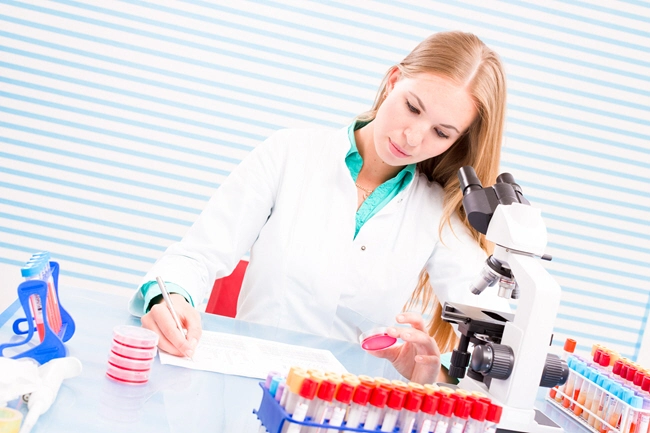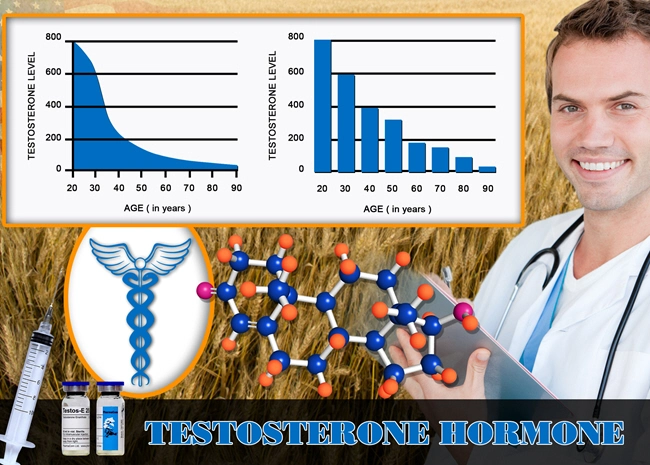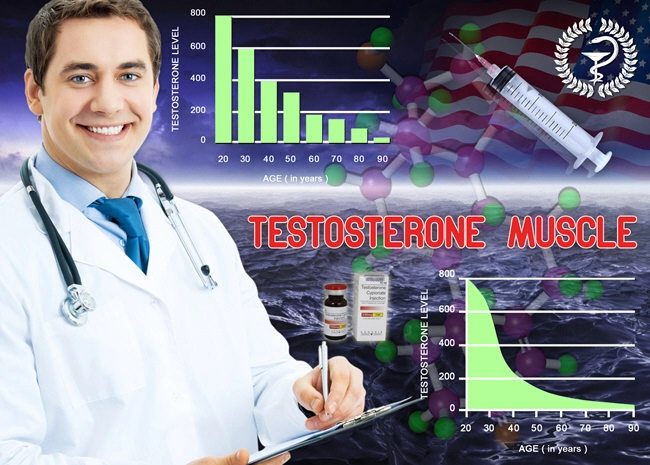
Introduction to Primary Hypogonadism
Primary hypogonadism, a condition marked by the failure of the testes to produce adequate levels of testosterone and sperm, remains a significant yet under-discussed health issue among American males. This condition can lead to a myriad of symptoms, including decreased libido, erectile dysfunction, fatigue, and infertility. Despite its impact on quality of life, awareness and understanding of primary hypogonadism are alarmingly low, necessitating a call to action for better education and awareness.
Understanding Primary Hypogonadism
Primary hypogonadism, also known as hypergonadotropic hypogonadism, occurs when the testes do not function properly due to intrinsic issues. This can be caused by genetic conditions such as Klinefelter syndrome, physical damage to the testes, or certain autoimmune disorders. Unlike secondary hypogonadism, which stems from problems with the pituitary gland or hypothalamus, primary hypogonadism directly affects the testes themselves. The resultant low testosterone levels can lead to a range of symptoms that significantly impact a man's health and well-being.
Symptoms and Diagnosis
The symptoms of primary hypogonadism can be subtle and easily overlooked, contributing to delayed diagnosis and treatment. Common signs include decreased sexual desire, erectile dysfunction, reduced muscle mass, increased body fat, and mood disturbances such as depression or irritability. Infertility is another critical symptom, often bringing men to seek medical attention.
Diagnosis typically involves a thorough medical history, physical examination, and blood tests to measure testosterone and gonadotropin levels. Elevated levels of luteinizing hormone (LH) and follicle-stimulating hormone (FSH) alongside low testosterone confirm the diagnosis of primary hypogonadism. Early detection and intervention are crucial for managing the condition effectively and improving quality of life.
Treatment Options
Treatment for primary hypogonadism focuses on replacing the deficient testosterone and addressing any underlying causes. Testosterone replacement therapy (TRT) is the cornerstone of treatment, available in various forms such as injections, gels, patches, and pellets. TRT can significantly improve symptoms such as libido, energy levels, and mood. However, it is essential to monitor treatment closely to avoid potential side effects such as an increased risk of sleep apnea, prostate enlargement, and cardiovascular issues.
For men desiring fertility, additional treatments such as gonadotropin therapy may be necessary to stimulate sperm production. Collaboration with a fertility specialist can provide tailored solutions to address infertility concerns.
The Importance of Awareness and Education
Despite the availability of effective treatments, many American males remain unaware of primary hypogonadism and its implications. This lack of awareness can lead to untreated symptoms, reduced quality of life, and delayed fertility interventions. Increasing public education and encouraging open discussions about men's health can help bridge this gap.
Healthcare providers play a pivotal role in raising awareness. By routinely screening for symptoms and educating patients about the importance of testosterone, healthcare professionals can facilitate earlier diagnosis and intervention. Additionally, public health campaigns and support groups can provide valuable resources and foster a supportive community for those affected.
Conclusion: A Call to Action
Primary hypogonadism is a condition that demands greater attention and understanding within the American male population. By enhancing awareness, improving education, and promoting early diagnosis and treatment, we can significantly improve the lives of those affected. It is time for a collective effort from healthcare providers, policymakers, and the community to shine a light on primary hypogonadism and ensure that no man suffers in silence.
Contact Us Today For A Free Consultation
Dear Patient,
Once you have completing the above contact form, for security purposes and confirmation, please confirm your information by calling us.
Please call now: 1-800-380-5339.
Welcoming You To Our Clinic, Professor Tom Henderson.

- Primary Hypogonadism: Understanding, Overcoming Stigma, and Effective Treatment in American Males [Last Updated On: February 26th, 2025] [Originally Added On: February 26th, 2025]
- Primary Hypogonadism and Diabetes: Dual Challenges and Integrated Management in Men's Health [Last Updated On: March 18th, 2025] [Originally Added On: March 18th, 2025]
- Primary Hypogonadism and Obesity Link in American Males: Hormonal and Metabolic Insights [Last Updated On: March 18th, 2025] [Originally Added On: March 18th, 2025]
- Primary Hypogonadism in American Men: Medical Treatment and Vital Support Networks [Last Updated On: March 18th, 2025] [Originally Added On: March 18th, 2025]
- Primary Hypogonadism: Impacts, Diagnosis, and Treatment Options for American Men [Last Updated On: March 18th, 2025] [Originally Added On: March 18th, 2025]
- Primary Hypogonadism: Innovative Treatments and Hope for American Males [Last Updated On: March 19th, 2025] [Originally Added On: March 19th, 2025]
- Emotional Journey of Primary Hypogonadism in American Males: Challenges and Support [Last Updated On: March 19th, 2025] [Originally Added On: March 19th, 2025]
- Exercise Strategies for Managing Primary Hypogonadism in American Males [Last Updated On: March 20th, 2025] [Originally Added On: March 20th, 2025]
- Diet and Nutrition's Role in Managing Primary Hypogonadism in American Males [Last Updated On: March 20th, 2025] [Originally Added On: March 20th, 2025]
- Primary Hypogonadism: Causes, Symptoms, and Management in Aging American Men [Last Updated On: March 21st, 2025] [Originally Added On: March 21st, 2025]
- Primary Hypogonadism's Impact on Muscle Mass in American Males: Insights and Interventions [Last Updated On: March 21st, 2025] [Originally Added On: March 21st, 2025]
- Financial Burden of Primary Hypogonadism on American Men: Costs, Coverage, and Coping Strategies [Last Updated On: March 22nd, 2025] [Originally Added On: March 22nd, 2025]
- Managing Primary Hypogonadism: Navigating Diagnosis, Treatment, and Healthcare in America [Last Updated On: March 22nd, 2025] [Originally Added On: March 22nd, 2025]
- Primary Hypogonadism in American Men: Advocacy, Diagnosis, and Treatment Strategies [Last Updated On: March 22nd, 2025] [Originally Added On: March 22nd, 2025]
- Primary Hypogonadism: Impact on Work and Management Strategies for American Men [Last Updated On: March 22nd, 2025] [Originally Added On: March 22nd, 2025]
- Exploring Primary Hypogonadism: Current Treatments and Future Innovations for American Males [Last Updated On: March 22nd, 2025] [Originally Added On: March 22nd, 2025]
- Primary Hypogonadism in American Men: Holistic Management and Quality of Life Improvement [Last Updated On: March 23rd, 2025] [Originally Added On: March 23rd, 2025]
- Primary Hypogonadism: Long-term Effects and Management in American Males [Last Updated On: March 23rd, 2025] [Originally Added On: March 23rd, 2025]
- Primary Hypogonadism: Causes, Impacts, and Treatment Options for American Men [Last Updated On: March 23rd, 2025] [Originally Added On: March 23rd, 2025]
- Managing Primary Hypogonadism: Testosterone's Role and Treatment in American Men [Last Updated On: March 24th, 2025] [Originally Added On: March 24th, 2025]
- Diagnosing Primary Hypogonadism: Symptoms, Testing, and Treatment Journey for American Men [Last Updated On: March 24th, 2025] [Originally Added On: March 24th, 2025]
- Primary Hypogonadism and Sleep: Impacts and Interventions for American Men [Last Updated On: March 24th, 2025] [Originally Added On: March 24th, 2025]
- Genetic Testing for Primary Hypogonadism: Diagnosis and Management in American Males [Last Updated On: March 24th, 2025] [Originally Added On: March 24th, 2025]
- Primary Hypogonadism: Causes, Treatment, and Management for American Men [Last Updated On: March 24th, 2025] [Originally Added On: March 24th, 2025]
- Primary Hypogonadism's Impact on Physical Activity in American Males [Last Updated On: March 25th, 2025] [Originally Added On: March 25th, 2025]
- Challenges in Diagnosing Primary Hypogonadism in American Males: Symptoms, Testing, and Stigma [Last Updated On: March 25th, 2025] [Originally Added On: March 25th, 2025]
- Primary Hypogonadism in American Men: Symptoms, Diagnosis, and Mental Health Support [Last Updated On: March 25th, 2025] [Originally Added On: March 25th, 2025]
- Primary Hypogonadism: Challenges, Resilience, and Thriving Strategies for American Males [Last Updated On: March 25th, 2025] [Originally Added On: March 25th, 2025]
- Primary Hypogonadism: Symptoms, Treatment, and the Vital Role of Peer Support [Last Updated On: March 25th, 2025] [Originally Added On: March 25th, 2025]
- Primary Hypogonadism: Understanding Treatments and Managing Side Effects in American Males [Last Updated On: March 25th, 2025] [Originally Added On: March 25th, 2025]
- Primary Hypogonadism: Social Impacts and Navigating Life in American Men [Last Updated On: March 25th, 2025] [Originally Added On: March 25th, 2025]
- Managing Primary Hypogonadism: Importance of Regular Check-ups for American Males [Last Updated On: March 26th, 2025] [Originally Added On: March 26th, 2025]
- Primary Hypogonadism: Impact on Self-Esteem and Holistic Management Strategies [Last Updated On: March 26th, 2025] [Originally Added On: March 26th, 2025]
- Nutritionists' Vital Role in Managing Primary Hypogonadism in American Males [Last Updated On: March 26th, 2025] [Originally Added On: March 26th, 2025]
- Managing Primary Hypogonadism: Diagnosis, Treatment, and Lifestyle Strategies [Last Updated On: March 26th, 2025] [Originally Added On: March 26th, 2025]
- Primary Hypogonadism: Impact on Body Image and Holistic Treatment Approaches [Last Updated On: March 26th, 2025] [Originally Added On: March 26th, 2025]
- Primary Hypogonadism in American Males: Diagnosis, Treatment, and Lifestyle Management [Last Updated On: March 26th, 2025] [Originally Added On: March 26th, 2025]
- Primary Hypogonadism: Emotional Impacts and Management Strategies for American Males [Last Updated On: March 26th, 2025] [Originally Added On: March 26th, 2025]
- Primary Hypogonadism in American Men: The Vital Role of Community Support [Last Updated On: March 26th, 2025] [Originally Added On: March 26th, 2025]
- Primary Hypogonadism's Impact on Career Aspirations in American Males [Last Updated On: March 27th, 2025] [Originally Added On: March 27th, 2025]
- Primary Hypogonadism: Symptoms, Diagnosis, and Management in American Men [Last Updated On: March 27th, 2025] [Originally Added On: March 27th, 2025]
- Primary Hypogonadism: Advocating for Research and Awareness in American Men [Last Updated On: March 27th, 2025] [Originally Added On: March 27th, 2025]
- Primary Hypogonadism: Understanding, Managing, and Educating American Males [Last Updated On: March 27th, 2025] [Originally Added On: March 27th, 2025]
- Primary Hypogonadism: Symptoms, Diagnosis, Treatment, and Healthcare Navigation in the U.S. [Last Updated On: March 27th, 2025] [Originally Added On: March 27th, 2025]
- Family Support Crucial for Managing Primary Hypogonadism in American Males [Last Updated On: March 27th, 2025] [Originally Added On: March 27th, 2025]
- Primary Hypogonadism: Diagnosis, Specialist Care, and Treatment for American Men [Last Updated On: March 28th, 2025] [Originally Added On: March 28th, 2025]
- Primary Hypogonadism: Impact, Diagnosis, and Treatment for American Men's Health [Last Updated On: March 28th, 2025] [Originally Added On: March 28th, 2025]
- Primary Hypogonadism: Emotional Support Needs and Comprehensive Care for American Men [Last Updated On: March 29th, 2025] [Originally Added On: March 29th, 2025]
- Exercise Physiologists' Vital Role in Managing Primary Hypogonadism in American Males [Last Updated On: March 30th, 2025] [Originally Added On: March 30th, 2025]
- Managing Primary Hypogonadism: Stress, Anxiety, and Holistic Health Strategies for Men [Last Updated On: March 30th, 2025] [Originally Added On: March 30th, 2025]
- Primary Hypogonadism: Impacts on Male Fertility and Family Planning in America [Last Updated On: March 30th, 2025] [Originally Added On: March 30th, 2025]
- Managing Primary Hypogonadism: Importance of Continuous Monitoring and Early Diagnosis [Last Updated On: March 31st, 2025] [Originally Added On: March 31st, 2025]
- Managing Primary Hypogonadism: Diet, Exercise, Sleep, and Lifestyle Strategies for American Men [Last Updated On: March 31st, 2025] [Originally Added On: March 31st, 2025]
- Overcoming Psychological Barriers to Treating Primary Hypogonadism in American Males [Last Updated On: April 1st, 2025] [Originally Added On: April 1st, 2025]
- Primary Hypogonadism in American Males: Diagnosis, Treatment, and Endocrinologist's Role [Last Updated On: April 5th, 2025] [Originally Added On: April 5th, 2025]
- Primary Hypogonadism: Impacts and Interventions for American Males' Social Life [Last Updated On: April 5th, 2025] [Originally Added On: April 5th, 2025]
- Financial Assistance Options for American Men with Primary Hypogonadism [Last Updated On: April 6th, 2025] [Originally Added On: April 6th, 2025]
- Primary Hypogonadism in American Males: Importance of Patient Education for Better Outcomes [Last Updated On: April 7th, 2025] [Originally Added On: April 7th, 2025]
- Managing Primary Hypogonadism: Symptoms, Diagnosis, and Treatment in American Men [Last Updated On: April 7th, 2025] [Originally Added On: April 7th, 2025]
- Primary Hypogonadism in American Men: Symptoms, Diagnosis, and Treatment Options [Last Updated On: April 9th, 2025] [Originally Added On: April 9th, 2025]
- Support Groups: Vital for American Males with Primary Hypogonadism [Last Updated On: April 9th, 2025] [Originally Added On: April 9th, 2025]
- Primary Hypogonadism: Challenges and Strategies for Enhancing Treatment Adherence in American Males [Last Updated On: April 10th, 2025] [Originally Added On: April 10th, 2025]
- Technology's Role in Managing Primary Hypogonadism: Wearables, Telemedicine, and Advanced Diagnostics [Last Updated On: April 10th, 2025] [Originally Added On: April 10th, 2025]
- Managing Primary Hypogonadism: A Multidisciplinary Approach for American Men [Last Updated On: April 11th, 2025] [Originally Added On: April 11th, 2025]
- Primary Hypogonadism: Challenges and Holistic Support for American Males [Last Updated On: April 12th, 2025] [Originally Added On: April 12th, 2025]
- Mental Health Apps: Supporting American Men with Primary Hypogonadism [Last Updated On: April 13th, 2025] [Originally Added On: April 13th, 2025]
- Primary Hypogonadism: Symptoms, Treatments, and Latest Research for American Men [Last Updated On: April 14th, 2025] [Originally Added On: April 14th, 2025]
- Primary Hypogonadism's Impact on American Males' Hobbies and Interests [Last Updated On: April 16th, 2025] [Originally Added On: April 16th, 2025]
- Managing Primary Hypogonadism: Importance of Regular Monitoring and Holistic Care [Last Updated On: April 16th, 2025] [Originally Added On: April 16th, 2025]
- Primary Hypogonadism: Challenges and Strategies for American Males' Travel [Last Updated On: April 17th, 2025] [Originally Added On: April 17th, 2025]
- Managing Primary Hypogonadism: Symptoms, Diagnosis, and Treatment for American Men [Last Updated On: April 17th, 2025] [Originally Added On: April 17th, 2025]
- Physical Therapy's Vital Role in Managing Primary Hypogonadism in American Males [Last Updated On: April 18th, 2025] [Originally Added On: April 18th, 2025]
- Managing Primary Hypogonadism: A Multidisciplinary Approach for American Men's Health [Last Updated On: April 18th, 2025] [Originally Added On: April 18th, 2025]
- Managing Primary Hypogonadism: Empowering American Men in the Workplace [Last Updated On: April 18th, 2025] [Originally Added On: April 18th, 2025]
- Primary Hypogonadism's Impact on American Males' Educational Pursuits and Management Strategies [Last Updated On: April 18th, 2025] [Originally Added On: April 18th, 2025]
- Dietitians' Role in Managing Primary Hypogonadism Through Nutrition in American Males [Last Updated On: April 19th, 2025] [Originally Added On: April 19th, 2025]
- Primary Hypogonadism in American Men: Symptoms, Treatment, and Personalized Care [Last Updated On: April 19th, 2025] [Originally Added On: April 19th, 2025]









